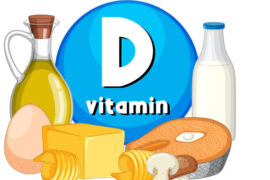Various eating patterns, from extreme low-calorie diets to detox regimens, have gained attention, but it’s crucial to recognize that some of these diets can have severe consequences if followed without expert supervision. The recent case of vegan raw food influencer Zhanna D’Art serves as a tragic reminder of the risks associated with extreme dietary choices. Zhanna’s exclusive exotic fruit diet led to her prolonged struggle with starvation and exhaustion, ultimately resulting in her passing away. While she believed this diet would maintain her youthful appearance, experts emphasize the importance of balanced nutrition for overall health and well-being.
Here are five types of diets that can potentially be harmful and even fatal if not followed under proper education, planning, and supervision:
1. Extremely Low-Calorie Diets:
Drastically restricting calorie intake can lead to nutrient deficiencies, muscle loss, weakened immune function, and organ damage if sustained over time. Meeting your body’s energy needs while ensuring a balanced intake of essential nutrients is crucial for overall health.
2. Fad Diets:
Diets that promise quick results but lack scientific support or sustainable long-term practices can be problematic. Unbalanced meal plans or extreme elimination of food groups can deprive your body of essential nutrients, potentially leading to malnourishment.
3. Detox Diets and Cleanses:
Detox diets, if followed without supervision and extended for extended periods, can be harmful. These diets often lack scientific backing and may lead to calorie deprivation. It’s essential to prioritize evidence-based nutrition and consult professionals.
4. Ketogenic Diet Without Medical Supervision:
The ketogenic diet, known for its low carbohydrate and high fat content, can lead to nutrient imbalances and organ damage if not properly managed. Medical supervision and guidance are recommended before attempting this diet.
5. Diets Relying on Excessive Supplements or Medications:
Diets heavily reliant on supplements or unregulated medications can pose risks, as they may lack proper scientific testing and oversight. Your health should never be compromised by unproven or potentially harmful substances.
It’s important to prioritize a balanced and sustainable approach to eating that aligns with your individual nutritional needs. Consulting registered dietitians or healthcare professionals before embarking on any restrictive diet is crucial to ensure your well-being and prevent potential health risks.
Disclaimer:
The information contained in this article is for educational and informational purposes only and is not intended as a health advice. We would ask you to consult a qualified professional or medical expert to gain additional knowledge before you choose to consume any product or perform any exercise.








